
Resources for grade 9-12 Career and Technical Education
- Subject:
- Career and Technical Education
- Material Type:
- Assessment
- Lesson
- Teaching/Learning Strategy
- Author:
- Caitlin McRae
- Jamie Rumage
- Date Added:
- 03/27/2020

Resources for grade 9-12 Career and Technical Education
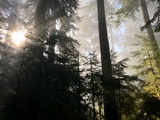
Resource for grade 9-12 comprehensive school counseling

Resources for grade 9-12 Health Education
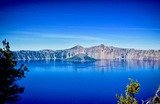
Resource suggestions to explore and consider as a way to support learning in grades 9-12 Language Arts.

Resource suggestions to explore and consider as a way to support your family learning during school closures.

Resources for grade 9-12 Physical Education

Resources for grade 9-12 STEM
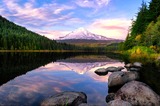
Resource suggestions to explore and consider as a way to support your family learning during school closures.
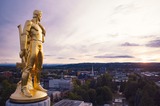
Resources for grade 9-12 Social Science

Resource suggestions to explore and consider as a way to support learning in grades 9-12 World Languages.

Resource suggestions to explore and consider as a way to support your family learning during school closures.

Resource suggestions to explore and consider as a way to support student learning in grades 3 - 5.

Middle school lessons utilize local phenomenon and are organized by grade bands. By designing instruction around local phenomenon, students are provided with a reason to learn shifting the focus from learning about a disconnected topic to figuring out why or how something happens. #Going 3D with GRC

What is a Group on the Oregon Open Learning Hub and what are the roles of the Group Members and Group Administrators?
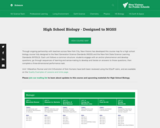
Through ongoing partnership with teachers across New York City, New Visions has developed this course map for a high school biology course fully designed to the Next Generation Science Standards (NGSS) and the New York State Science Learning Standards (NYSSLS). Each unit follows a common structure: students engage with an anchor phenomenon and develop questions; go through sequences of learning and sense-making to develop and iterate on answers to those questions; then complete a three-dimensional performance task.
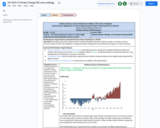
High school lessons utilize local phenomenon and are organized by grade level. By organizing instruction around local phenomenon, students are provided with a reason to learn shifting the focus from learning about a disconnected topic to figuring out why or how something happens. #Going 3D with GRC.
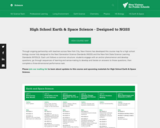
Through ongoing partnership with teachers across New York City, New Visions has developed this course map for a high school biology course fully designed to the Next Generation Science Standards (NGSS) and the New York State Science Learning Standards (NYSSLS). Each unit follows a common structure: students engage with an anchor phenomenon and develop questions; go through sequences of learning and sense-making to develop and iterate on answers to those questions; then complete a three-dimensional performance task.

The Patterns High School Science Sequence is a three year course pathway and curriculum aligned to the Next Generation Science Standards (NGSS). The sequence consists of freshman physics, sophomore chemistry, and junior biology courses. Each course utilizes common instructional strategies and real world phenomena and design challenges that engage students and support their learning. The curriculum is a combination of teacher-generated and curated open-content materials. The Teacher generated materials are shared freely under a Attribution-NonCommercial-Sharealike Creative Commons License. Teacher workshops for each course are offered each summer in the Portland-Metro area. For more information, see our Professional Development page.
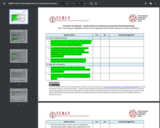
Performance assessments offer a departure from traditional assessment frameworks. In performance assessments, students develop and demonstrate mastery of standard-aligned content and skills through completion of authentic, relevant, and engaging tasks, and application of higher order thinking skills through research, modeling, design, analysis, experimentation, and/or evaluation.
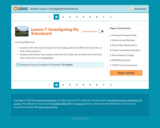
Watershed Awareness using Technology and Environmental Research for Sustainability (WATERS)
The WATERS project is developing and researching a student-centered, place-based, and accessible curriculum for teaching watershed concepts and water career awareness for students in the middle grades. This 10-lesson unit includes online, classroom, and field activities. Students use a professional-grade online GIS modeling resource, simulations, sensors, and other interactive resources to collect environmental data and analyze their local watershed issues. The WATERS project is paving a path to increased access to research-based, open access curricula that hold the potential to significantly increase awareness of and engagement with watershed concepts and career pathways in learners nationwide.
This material is licensed under a Creative Commons Attribution 4.0 License. The software is licensed under Simplified BSD, MIT or Apache 2.0 licenses. Please provide attribution to the Concord Consortium and the URL https://concord.org.